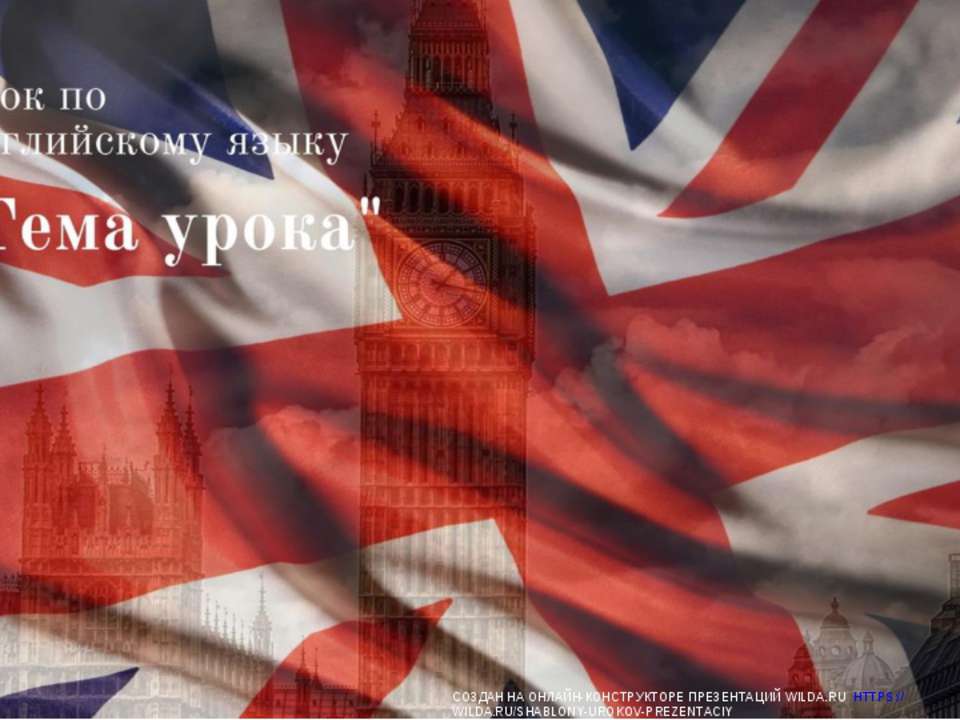Parliament

- Рубрика: Презентации / Презентации по английскому языку
- Просмотров: 227
Презентация для классов "Parliament" онлайн бесплатно на сайте электронных школьных презентаций uchebniki.org.ua
Parliament A parliament is a legislature, especially in those countries whose system of government is based on the Westminster system modeled after that of the United Kingdom. The name is derived from the French parlement, the action of parler (to speak): a parlement is a discussion. The term came to mean a meeting at which such a discussion took place. It acquired its modern meaning as it came to be used for the body of people (in an institutional sense) who would meet to discuss matters of state.
The British Parliament The British Parliament is the oldest in the world. It originated in th 12th century as Witenagemot, the body of wise councellers whom the King needed to consult pursuing his policy. The British Parliament consists of the House of Lords and the House of Commons and the Queen as its head.
The House of Commons plays the major role in law-making. It consists of Members of Parliament (called MPs for short). Each of them represents an area in England, Scotland, Wales and Ireland. MPs are elected either at a general election or at a by-election following the death or retirement. Parliamentary elections are held every 5 years and it is the Prime Minister who decides on the exact day of the election. The minimum voting age is 18. And the voting is taken by secret ballot. The election campaign lasts about 3 weeks
The British parliamentary system depends on politicals parties. The party which wins the majority of seats forms the goverment and its leader usually becomes Prime Minister. The Prime Minister chooses about 20 MPs from his party to become the cabinet of ministers. Each minister is responsible for a particular area in the goverment. The second largest party becomes the official opposition with its own leader and "shadow cabinet". The leader of the opposition is a recognized post in the House of Commons.
The parliament and the monarch have different roles in the goverment and they only meet together on symbolic occasions, such as coronation of a new monarch or the opening of the parliament.
In reality, the House of Commons is the one of three which has true power. The House of Commons is made up of six hundred and fifty elected members, it is presided over by the speaker, a member acceptable to the whole house. MPs sit on two sides of the hall, one side for the governing party and the other for the opposition. The first 2 rows of seats are occupied by the leading members of both parties (called "front benches") The back benches belong to the rank-and-life MPs. Each session of the House of Commons lasts for 160-175 days. Parliament has intervals during his work. MPs are paid for their parliamentary work and have to attend the sittings.
As mention above, the House of Commons plays the major role in law making. The procedure is the following: a proposed law ("a bill") has to go through three stages in order to become an act of parliament, these are called "readings". The first reading is a formality and is simply the publication of the proposal. The second reading involves debate on the principles of the bill, it is examination by parliamentary committy. And the third reading is a report stage, when the work of the committy is reported on to the house. This is usually the most important stage in the process. When the bill passes through the House of Commons, it is sent to the House of Lords for discussion, when the Lords agree it, the bill is taken to the Queen for royal assent, when the Queen sings the bill, it becomes act of the Parliament and the Law of the Land.
The House of Lords has more than 1000 members, although only about 250 take an active part in the work in the house. Members of this Upper House are not elected, they sit there because of their rank, the chairman of the House of Lords is the Lord Chancellor. And he sits on a special seat, called "WoolSack" The members of the House of Lords debate the bill after it has been passed by the House of Commons. Some changes may be recommended and the agreement between the two houses is reached by negotiations.












